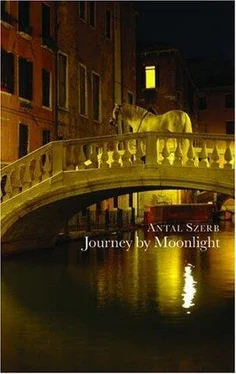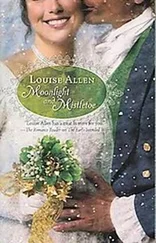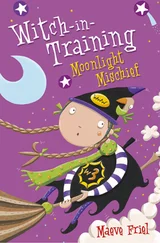He paid for his drinks and staggered out of the café. The omens had not lied. It was for this that he had been summoned to Rome: because Éva was here. Now he understood that she was the source and object of his nostalgia. Éva, Éva …
And he knew he would not be travelling home. If he had to wear a donkey jacket and wait for fifty years, then he would wait. At last there was a place in the world where he had reason to be, a place that had meaning. For days, without realising it, he had sensed this meaning everywhere, in the streets, houses, ruins and temples of Rome. It could not be said of the feeling that it was ‘filled with pleasurable expectation’. Rome and its millennia were not by nature associated with happiness, and what Mihály anticipated from the future was not what is usually conjured up by ‘pleasurable expectation’. He was awaiting his fate, the logical, appropriately Roman, ending.
He wrote at once to Tivadar to say that his state of health would not permit an extended journey. He did not send the money to Millicent. Millicent was so rich she could manage without it. If she had waited all this time she could wait a bit longer. The delay was Tivadar’s fault for not sending more money.
That evening, in his elation, his nervous excitement after the feverish waiting, he got drunk on his own, and when he woke later in the night with a violently palpitating heart he again knew the terrible feeling of mortality which in his younger days had been the strongest symptom of his passion for Éva. He well knew, now even more clearly than he had the day before, that for a thousand and one reasons he really had to go home; and that if despite that knowledge he remained in Rome because of Éva — and how uncertain it was that he actually had seen her — he was putting everything at risk, perhaps doing irreparable offence against his family and his own status as a bourgeois, and that very uncertain days lay ahead. But not for one minute did it occur to him that there was anything else he could do. All this, the great gamble and the death-haunted feeling, was so much part of those adolescent games. Not tomorrow, and not the day after, but one day he and Éva would meet, and, until then, he would live. His life would begin anew, not as it had been during all the wasted years. Incipit vita nova .
EVERY DAY he read the newspapers, but with rather mixed feelings. He enjoyed the paradox that they were written in Italian, that potent and voluminous language, but (in their case) with the effect of a mighty river driving a sewing-machine. But the contents deeply depressed him. The Italian papers were always ecstatically happy, as if they were written not by humans but by saints in triumph, just stepped down from a Fra Angelico in order to celebrate the perfect social system. There was always some cause for happiness: some institution was eleven years old, a road had just turned twelve. So someone would make a monumental speech, and the people would enthusiastically applaud, at least according to accounts in the press.
Like all foreigners, Mihály was exercised by the question of whether the people did actually welcome everything as fervently, and were as steadily, indefatigably, tirelessly happy, as the papers insisted. Naturally he was aware that it was difficult for a foreigner to take an exact measure of Italian contentment and sincerity, especially when he never spoke to anyone, and had no real connection with any aspect of Italian life. But as far as he could judge, from such a distance, and given his general detachment, it seemed to him that the Italian people were indeed indefatigably enthusiastic and happy, ever since these had come into fashion. But he also knew what trifling and stupid things could suffice to make man happy, whether individually or in the mass.
However he did not occupy himself at great length with this question. His instincts told him that in Italy it was all very much the same whoever happened to be in power and whatever the ideas in whose name they ruled. Politics touched only the surface. The people, the vegetative sea of the Italian masses, bore the changing times on their back with astonishing passivity, and lived quite unconnected with their own remarkable history. He suspected that even Republican and Imperial Rome, with its huge gestures, its heroics and bestial stupidities, had been nothing more than a virile drama on the surface, the whole Roman Empire the mere private affair of a few brilliant actors, while down below the Italians placidly ate their pasta, sang songs of love, and begat their countless offspring.
One day a familiar name met his eye in the Popolo d’Italia : ‘The Waldheim Lecture’. He studied the article, from which it emerged that Rodolfo Waldheim, the world-famous Hungarian classical philologist and religious historian, had given a lecture at the Accademia Reale, entitled Aspetti della morte nelle religioni antiche . The fiery Italian journalist fêted the lecture as shedding entirely new light not just on death-practices in ancient religions but on the nature of death in general. The text was moreover an important document of Hungaro-Italian friendship. The audience had enthusiastically received the famous professor, whose very youthfulness had surprised and delighted them.
This Waldheim, Mihály decided, could be no other than Rudi Waldheim, and he was filled with a kind of pleasure, for this man had at one time been a good friend. They had been at university together. Although neither was very congenial by nature — Mihály because he rather looked down upon anyone who was not of the Ulpius set, Waldheim because he felt that compared with himself everyone else was ignorant, dull and cheap — nonetheless a kind of friendship had grown between them out of their interest in religious history. The relationship had not been a very lasting one. Waldheim’s knowledge was already formidable: he had read everything that mattered, in every language, and he willingly and brilliantly expounded to Mihály, whom he found an eager listener, until he realised that his interest in the subject was not very deep. He decided his friend was a dilettante and withdrew into suspicion. Mihály for his part was astonished and dismayed by the vastness of his friend’s knowledge. If a mere beginner knew so much, he wondered, how much more would a bearded practitioner know, and he entirely lost heart, particularly as not long afterwards he abandoned his university studies. Waldheim however went on to Germany to perfect himself at the feet of the great masters and the two lost touch completely. Years later Mihály would read in the newspapers of another step in Waldheim’s rapid rise up the academic ladder, and when he became a lecturer at the university Mihály had been on the point of writing to congratulate him, but then hadn’t. They had never again met in person.
Now, reading his name, he remembered Waldheim’s peculiar charm, which he had quite forgotten in the intervening years: the fox-terrier liveliness of his bright, round, shaven head; his miraculous loquacity (for Waldheim held forth unstoppably, at full volume, in long perfectly constructed sentences almost always full of interest, even in his sleep it was generally supposed); his indomitable vitality; his perpetual appetite for women (which keeps this type of man always busily active around his more attractive female colleagues); above all his distinctive quality, which, following Goethe, though with modest reluctance, he himself termed ‘charisma’; and the fact that the study of the concept of Spirit, in all its detailed workings as well as the abstract whole, held him in a white heat of passion. He was never indifferent, always feverishly busy with something, in raptures over some great and possibly ancient manifestation of the Spirit, or detesting some ‘dull’ or ‘cheap’ or ‘second-rate’ piece of stupidity, and invariably sent into a trance by the very word ‘Spirit’, which for him actually seemed to mean something.
Читать дальше












